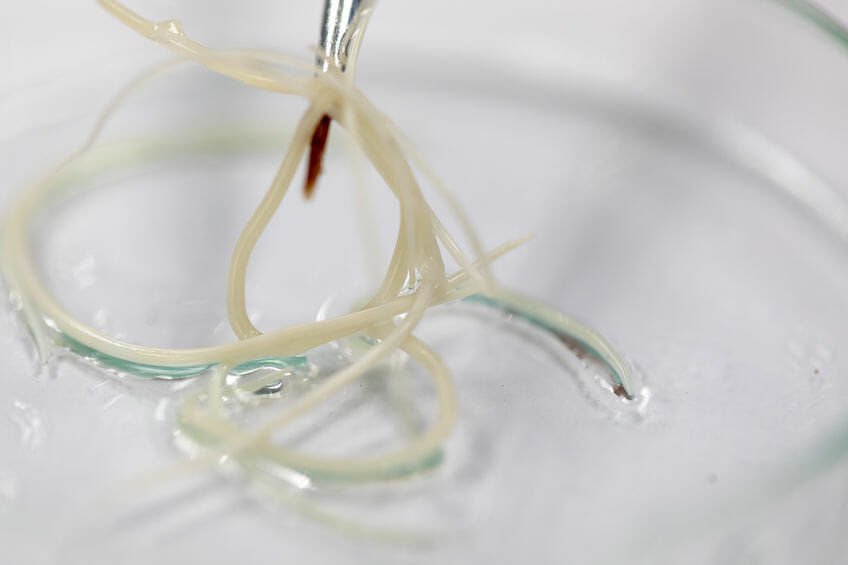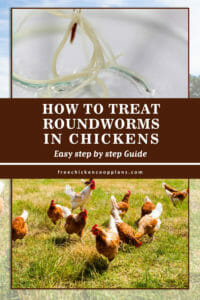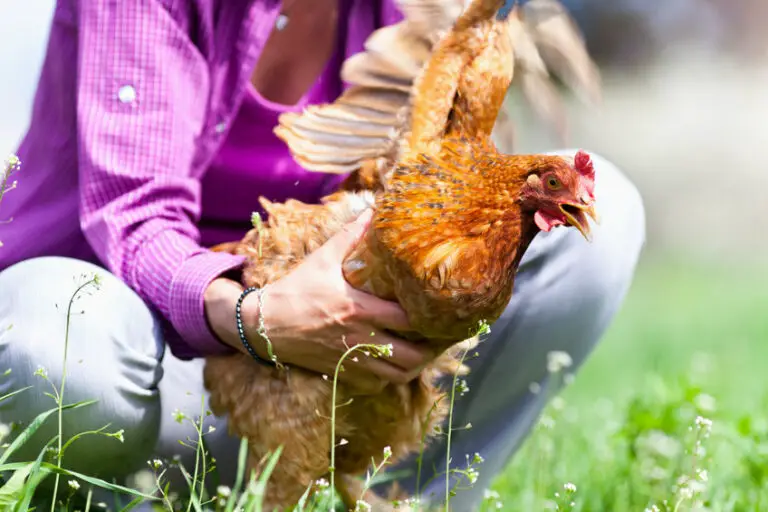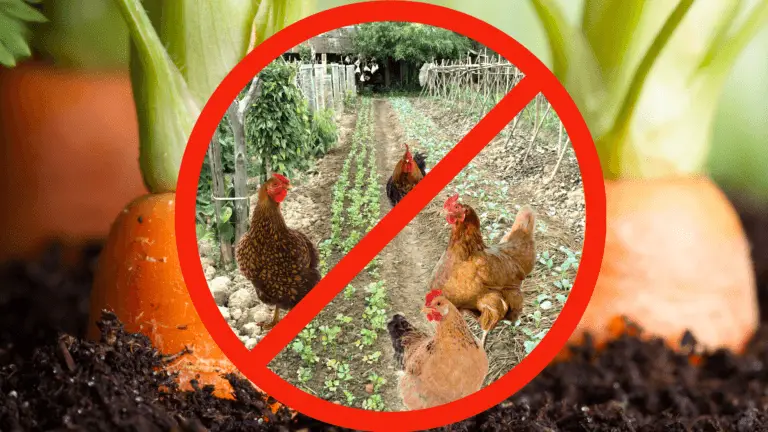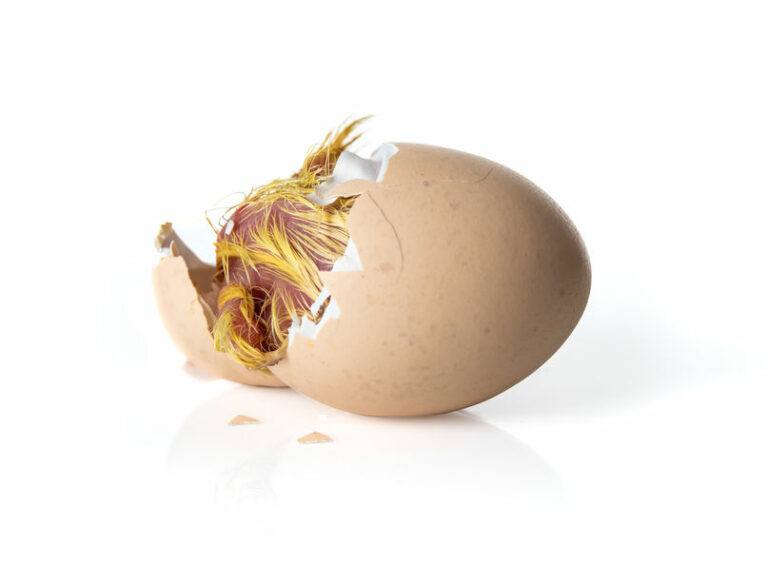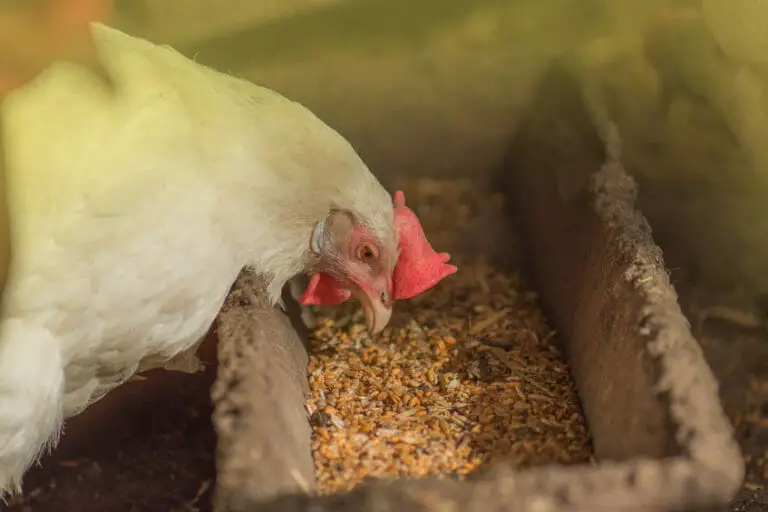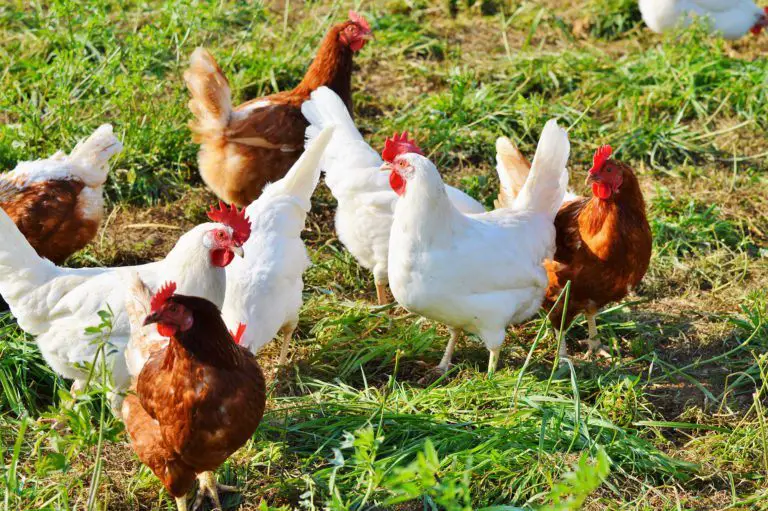How To Treat Roundworms In Chickens
Building your very own chicken coop can be quite the undertaking. At FreeChickenCoopPlans.com, our goal is to make the process as easy for you as possible. An important part of taking responsibility for backyard poultry is understanding what you need to do to keep them safe, happy, and healthy. So, take extra care designing the coop of your dreams; pick the feed with the highest reviews; and be sure to learn all you can about the different ways things can go south.
Worms, unfortunately, are very common in chickens, and knowing how to treat them is key to sustainable success and joy as an owner of chickens. In this article, we’ll take a quick look at one of the most common forms of worms – Roundworms – and learn what they are, how you’re chickens might get them and how you can tell, and, most importantly, we’ll learn how to treat roundworms in chickens.
What Are Roundworms?
Just saying your chicken has worms doesn’t mean much, and certainly won’t get them any closer to being healthy. There are dozens of different types of worms in chickens that can harm them, and knowing the specifics of each is key to providing the appropriate treatment.
Also known as Ascaridia galli, is one of the largest intestinal parasites that can harvest themselves inside of living animals, and are among the most common that can be found in chickens. They can grow up to 5 inches in length (yuck!), usually live in the chickens’ small intestine, and can sometimes migrate to other parts of the chicken’s body. The severity of the infection largely depends on the number of roundworms living inside the chicken. The roundworms multiply by laying eggs, which can often pass through the chicken manure. An in-depth, more scientific look at roundworms can be found at the Poultry DVM site.
How Chickens Get Roundworms And How to Tell If They’re Infected…
The most common way for roundworms to pass from the chicken to their surrounding environment is through their droppings. Chicken manure then contaminates their feed, drinking water, or surrounding landscape. Since chickens have a tendency to peck at everything – not just their food and water – the most common way for them to get roundworms is through ingesting contaminated feed, water, or other parts of their environment.
Roundworms can occasionally be visible in infected chicken’s manure or in the yolk of a hen’s egg. Infected chickens can also show common symptoms of reduced appetite, diarrhea or undigested food in feces, infrequent bowel movements, and discoloring in either feathers or skin.
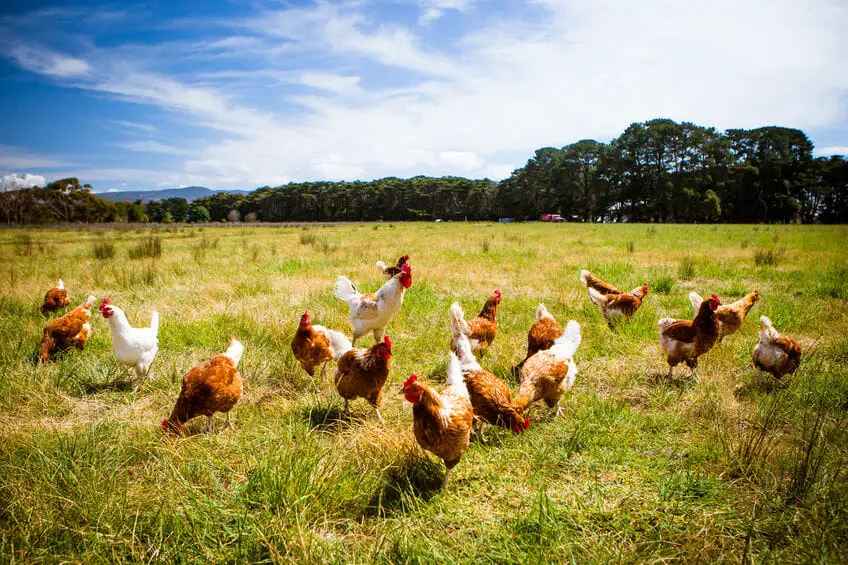
How To Treat Roundworms In Chickens
Like any ailment you can think of, prevention is the best medicine. Give your chickens enough space to move around freely, feed them a consistent, balanced diet, and clean the coop and bedding regularly. If one of your chickens gets roundworms – which is bound to happen at some point – thankfully there’s a wide variety of medicines that you can try to nurse your chicken back to health. We feel that the easiest medicine to administer, especially for amateurs or beginners, are those you can mix directly into their water or feed. Here are a few options to look into:
- Wazine – This dewormer is designed specifically to rid your chickens of roundworms, while many other dewormers will just target worms more generally. It’s considered one of the most reliable brands out there and gets the job done consistently.
- Safe-Guard – This brand is made for farm animals more generally, but is a popular choice for those looking to rid their chickens of roundworms. Just like Wazine, simply read the directions and add the required amount to your chicken’s water supply.
- Durvet – A more natural dewormer product, receiving many positive reviews from chicken owners. Most people mix it into the feed.
- Garlic – For those who desire more natural remedies, Garlic surprisingly has been widely hailed as a way to deworm chickens without exposing them to any chemical agents. Add chopped up garlic to your chicken’s water supply for up to a week, and replenish as needed. This may take more time, but again, you’ll have the peace of mind!
The Last “Cluck…”
We hope you learned more about how to treat roundworms in chickens by reading this article. With a better understanding of roundworms, you can now confidently both work to prevent and treat the condition as needed!
“Happy Chickening!”
Like This Post? Pin It

